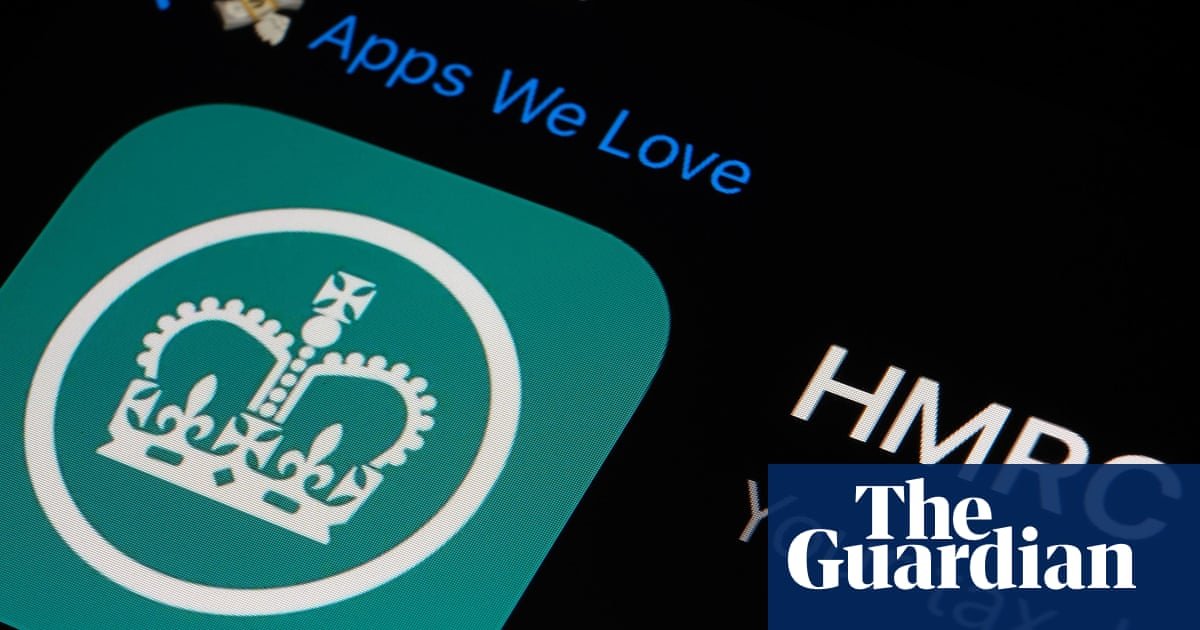Business
Microsoft Internal Memo: ‘Using AI Is No Longer Optional.’

Microsoft is asking some managers to evaluate employees based on how much they use AI internally, and the software giant is considering adding a metric related to this in its review process, Business Insider has learned.
Julia Liuson, president of the Microsoft division responsible for developer tools such as AI coding service GitHub Copilot, recently sent an email instructing managers to evaluate employee performance based on their use of internal AI tools like this.
“AI is now a fundamental part of how we work,” Liuson wrote. “Just like collaboration, data-driven thinking, and effective communication, using AI is no longer optional — it’s core to every role and every level.”
Liuson told managers that AI “should be part of your holistic reflections on an individual’s performance and impact.”
Microsoft’s performance requirements vary from team to team, and some are considering including a more formal metric about the use of internal AI tools in performance reviews for its next fiscal year, according to a person familiar with the situation. This person asked not to be identified discussing private matters.
These changes are meant to address what Microsoft sees as lagging internal adoption of its Copilot AI services, according to another two people with knowledge of the plans. The company wants to increase usage broadly, but also wants the employees building these products have a better understanding of the tools.
In Liuson’s organization, GitHub Copilot is facing increasing competition from AI coding services including Cursor. Microsoft lets employees use some external AI tools that meet certain security requirements. Staff are currently allowed to use coding assistant Replit, for example, one of the people said.
A recent note from Barclays cited data suggesting that Cursor recently surpassed GitHub Copilot in a key part of the developer market.
Barclays note, citing the Ramp Business Spending Report
Competition among coding tools is even becoming a sticking point in Microsoft’s renegotiation of its most important partnership with OpenAI. OpenAI is considering acquiring Cursor competitor Windsurf, but Microsoft’s current deal with OpenAI would give it access to Windsurf’s intellectual property and neither Windsurf nor OpenAI wants that, a person with knowledge of the talks said.
Have a tip? Contact this reporter via email at astewart@businessinsider.com or Signal at +1-425-344-8242. Use a personal email address and a nonwork device; here’s our guide to sharing information securely.
Business
UK chasing £90m in taxes from temp staffing firm rescued from insolvency | HMRC

The UK exchequer is chasing about £90m in unpaid taxes after a temporary staffing business was rescued from insolvency proceedings in an £18m deal that reimbursed private funders in full.
The main assets of Challenge Recruitment Group, which counted Tesco, Sainsbury’s and Co-op among its top customers, were acquired from administration in July by the US website swipejobs, in what appears to be the second time the British staffing business has emerged from insolvency while owing tens of millions of pounds to the exchequer.
The levels of debt owed by Challenge to HM Revenue and Customs has emerged as the chancellor, Rachel Reeves, is under pressure to announce tax rises in her autumn budget in order to shore up the public finances.
Swipejobs paid £4.9m as part of a “pre-pack” administration deal for the pick of Challenge’s contracts supplying staff to a series of huge UK brands, as well as £12.7m to the collapsed group’s secured lenders, Close Brothers and Praetura Asset Finance, according to a report by administrators FRP.
A pre-pack administration is a restructuring deal agreed in advance of a company entering insolvency – a staged process that frees the acquired business of debt and leaves administrators to use receipts to at least partly pay creditors.
Challenge’s remaining creditors, including HMRC, will probably be repaid a fraction of what they are owed.
When the deal to acquire Challenge assets from administration was announced on 12 July, a statement by the UK group made no mention of the company’s difficulties. It said: “We’re proud to announce that Challenge-trg Group has been acquired by swipejobs … Together, we are in an even better position to deliver exceptional results and enhanced operational efficiency; all underpinned by market-leading technology.”
Four Challenge businesses in administration owe HMRC about £34m, according to the administrator’s report.
A fifth company, TLR White Trading, owes a further £56m to HMRC relating to “five months of VAT and four months of PAYE” incurred by the wider Challenge business. TLR White Trading entered a separate insolvency process in April 2025, six months after being spun out of the Challenge Recruitment Group in October 2024. The new standalone company had the sole function of providing “temporary staffing and payroll services” to the wider Challenge group and was funded by the larger business in order to settle its “payroll costs”.
The latest Challenge insolvency comes after the same recruitment business, then called IF Trade Co, transferred its main contracts to Challenge-trg in 2022, before entering administration with debts to HMRC of about £34m, according to further documents filed with Companies House. Two brothers, Richard and Thomas Cropper, were directors of both IF Trade and Challenge-trg.
The siblings then sold a 75% stake in Challenge to an employee ownership trust for an undisclosed sum in October 2024, nine months before the group companies entered administration.
after newsletter promotion
Swipejobs said it had acquired Challenge assets on a “go-forward basis” and that the brothers have been given a six-month consultancy contract. The Croppers did not respond to efforts to contact them.
HMRC estimates that “phoenixism” – the art of liquidating a company and allowing the directors to rise from the ashes in a new entity, free of debts – cost the exchequer about 22% of the £3.8bn of tax losses reported in 2022 to 2023.
An HMRC spokesperson said: “As the chancellor announced in her spring statement, the government is taking action to improve collaboration between HMRC, Companies House and the Insolvency Service to tackle those using contrived corporate insolvencies and dissolutions – so-called ‘phoenixism’ – to evade tax.”
Business
The good news is, you’re owed a tax refund. The bad news? It’s a scam | Scams

Tax calculations can be, well, taxing, so a message from HMRC saying that there’s been a mistake may not ring too many alarm bells. Some bring good news: you have overpaid and are owed a refund, but others claim you owe money. In both cases there’s an imminent deadline to act – sometimes with the threat of legal action, or penalties if you don’t.
Scammers are taking advantage of people’s fears over bills to steal personal and banking information. Automated phone calls, and messages sent by text and email, typically tell you that you need to click on a link and log in to make a payment or claim a refund.
In the year to 31 July, HMRC received more than 170,000 reports of scams, of which more than 47,000 involved fake refunds. These happen year-round, but often catch people out around the time of deadlines for self-assessment tax returns.
HMRC says it will never contact you in that way to ask you to claim a refund, or give personal details, and that it never leaves voicemail messages threatening legal action or arrest.
What the scam looks like
Messages can be very convincing and bear the logo and details of HMRC.
They will tell you to act quickly so you feel panicked into responding.
There will be a link, and the website it takes you to may also be very convincing. However, check the URL and it won’t be an official gov.uk address.
Caller ID can be spoofed so it appears that it is genuinely HMRC getting in touch.
What to do
If you think you may genuinely be owed a refund, or are concerned that you have underpaid, you can find out via your tax account.
HMRC lists the areas that it may want to contact people about, and the ways in which it may do so. You can check this list to find out what details appear on genuine messages.
Report scam messages to HMRC. You can forward emails to phishing@hmrc.gov.uk and texts to 60599.
Do not trust caller ID. Put the phone down and call back later, or check your account online.
Business
Publications aimed at LGBTQ+ audiences face discrimination from advertisers, editors warn | Media

Publications aimed at LGBTQ+ and other diverse audiences are facing “good old-fashioned discrimination” as advertisers avoid them after political attacks on diversity and inclusion campaigns, editors have said.
Senior figures at publications aimed at the gay community and other minority groups said a previous “gold rush” to work with such titles was over.
There has been a backlash in the US over corporate diversity, equity, and inclusion (DEI) efforts in the past 18 months, which has led to some big names rolling back their plans.
Tag Warner, the chief executive of Gay Times, said his publication, which had been growing digitally in the US, had lost 80% of its advertisers in the past year. It has also lost in excess of £5m in expected advertiser revenue.
Warner, who has led the outlet since 2019, said his title’s growth had been accompanied by an enthusiasm from brands to embrace LGBTQ+ audiences. He blames an anti-DEI drive in the US for the dramatic shift.
“I know that media and marketing is also going through a challenging year anyway, but when we’re thinking about other organisations that don’t talk to diverse themes, they’re not nearly as impacted as we are,” he said. “This is just good old-fashioned discrimination. Because discrimination doesn’t have to make business sense. Discrimination doesn’t have to be logical. Discrimination is discrimination.
“We’re really experiencing the impact of what happens when voices that are pressuring organisations to give in to less inclusive perspectives start winning. Then it creates this massive behavioural shift in brands and organisations.”
Nafisa Bakkar, the co-founder of Amaliah, a publication aimed at “amplifying the voices of Muslim women”, said there had been a “change in mood” among brands and advertisers. “There was this DNI [diversity and inclusion] gold rush,” she said. “It is, I would say, well and truly over.
“We work with a lot of UK advertisers, but I would say that the US has a lot more emphasis on what they would call ‘brand safety’, which I think is a code word for ‘we don’t want to rock the boat’. I would say there is a lot more focus on this element.”
Ibrahim Kamara, the founder of the youth platform GUAP, which has a large black and ethnically diverse audience, said he had detected a “relative difference” from 2020 in approaches from brands.
He and others cited the economic pressures on advertisers generally in recent years. However, he said the “hype and the PR around wanting to support and connect with diverse audiences” had also subsided.
“The thing that most people within these kind of spaces can probably agree on is that the energy and the PR is very different now,” he said. “It was almost a badge of honour to be able to say that you’re supporting certain communities. Now, I’ve seen that lots of the diversity and inclusion people that were hired around that period have probably lost their jobs. It doesn’t have the same PR effect any more.”
Warner said the anti-DEI impact pre-dated the return of Donald Trump to the White House. Figures such as the conservative pundit Robby Starbuck have been engaged in a long-running anti-DEI campaign, pressuring firms to drop their diversity efforts. However, Warner said Trump’s arrival “gave everyone, I think, permission to be honest about it”.
Not all publications in the sector have been hit in the same way as Gay Times. Companies with business models less reliant on US advertising, as well as some big players with long-established relationships, said they had managed to negotiate the changing political environment.
“Brands are nervous, that’s for sure, or careful – or a combination of both,” said Darren Styles, the managing director of Stream Publishing, which publishes Attitude magazine. “They’re aware it can be a lightning rod for a vocal minority. But our experience is that most people are holding their ground, if not doubling down.”
Styles also said he was not complacent, however, given the rise of Nigel Farage’s Reform party in the UK and its lack of historical support for the LGBTQ+ community.
“I’m not incautious about the future,” he said. “Who knows what next year will bring, because that narrative is not going away. Obviously, there’s the rise of Reform in the polls.
“[Farage] is quite clearly not an ally to our community and he’s expressed disdain in the past at the awards we’ve given out to people in the trans community. So it is a worry as political momentum gains around there. But I think broadly, consumers in the UK are a bit more capable of thinking for themselves.”
Mark Berryhill, the chief executive of equalpride, which publishes prominent US titles like Out and The Advocate, said some brands and agencies “may have been a little bit more cautious than they have been in the past”. However, he said it had so far meant deals had taken longer to be completed, in a tough economic climate.
He said the political headwinds made it more important to highlight that working with such titles was simply a sound business decision. “We’ve tried to do a better job in this political climate of just selling the importance of our buying power,” he said. “Everybody’s cautious and I don’t think it’s just LGBTQ. I think they’re cautious in general right now with their work with minority owned companies.
“The one thing that maybe this whole controversy has helped us with a little bit is to really make brands realise it’s a business decision. It’s not just a charity or something you should do because you feel guilty.
“You should do it because it’s the right thing to support LGBTQ journalism. We’re small. We need to get the word out. We have important stories to tell. But it’s also a good business decision. The more we show that side, certain brands will come along.”
-
Tools & Platforms3 weeks ago
Building Trust in Military AI Starts with Opening the Black Box – War on the Rocks
-

 Ethics & Policy1 month ago
Ethics & Policy1 month agoSDAIA Supports Saudi Arabia’s Leadership in Shaping Global AI Ethics, Policy, and Research – وكالة الأنباء السعودية
-

 Events & Conferences3 months ago
Events & Conferences3 months agoJourney to 1000 models: Scaling Instagram’s recommendation system
-

 Business2 days ago
Business2 days agoThe Guardian view on Trump and the Fed: independence is no substitute for accountability | Editorial
-

 Jobs & Careers2 months ago
Jobs & Careers2 months agoMumbai-based Perplexity Alternative Has 60k+ Users Without Funding
-

 Funding & Business2 months ago
Funding & Business2 months agoKayak and Expedia race to build AI travel agents that turn social posts into itineraries
-

 Education2 months ago
Education2 months agoVEX Robotics launches AI-powered classroom robotics system
-

 Podcasts & Talks2 months ago
Podcasts & Talks2 months agoHappy 4th of July! 🎆 Made with Veo 3 in Gemini
-

 Podcasts & Talks2 months ago
Podcasts & Talks2 months agoOpenAI 🤝 @teamganassi
-

 Jobs & Careers2 months ago
Jobs & Careers2 months agoAstrophel Aerospace Raises ₹6.84 Crore to Build Reusable Launch Vehicle




















